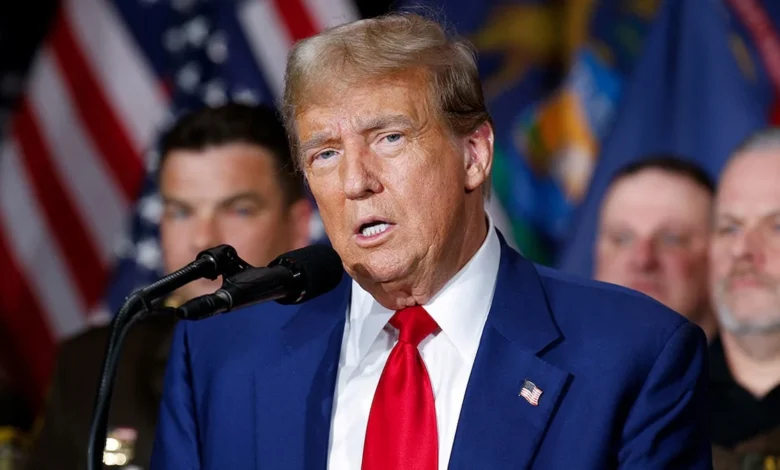Trump Promises to End Birthright Citizenship, Faces Legal and Political Obstacles
WASHINGTON, D.C. — President-elect Donald Trump has pledged to end birthright citizenship as part of his ongoing efforts to curb illegal immigration and reshape American immigration policy. This commitment, which he made during his presidential campaign, promises to be one of the most contentious and legally complex challenges of his second term, should he be re-elected.

WASHINGTON, D.C. — President-elect Donald Trump has pledged to end birthright citizenship as part of his ongoing efforts to curb illegal immigration and reshape American immigration policy. This commitment, which he made during his presidential campaign, promises to be one of the most contentious and legally complex challenges of his second term, should he be re-elected.
Birthright citizenship, a policy enshrined in the 14th Amendment of the U.S. Constitution, grants automatic citizenship to any child born on U.S. soil, regardless of their parents’ immigration status. Trump, who has long been critical of this policy, has vowed to take swift action to end it as soon as he assumes office, potentially through executive orders or new legislation.
“We’re going to end that because it’s ridiculous,” Trump said in a recent interview on NBC’s Meet the Press, referring to the practice of granting citizenship to children born in the U.S. to undocumented parents. He has argued that birthright citizenship encourages illegal immigration and “birth tourism,” where foreign nationals travel to the U.S. to give birth and secure citizenship for their children.
Opponents of the policy, including Trump’s supporters, believe that ending birthright citizenship would discourage illegal immigration and reduce the incentive for people to come to the U.S. illegally. “Simply crossing the border and having a child should not entitle anyone to citizenship,” said Eric Ruark, Director of Research at NumbersUSA, a group that advocates for stricter immigration controls.
However, critics warn that ending birthright citizenship would have significant social and legal consequences. Advocates for immigration rights argue that the policy is a cornerstone of American identity, promoting integration and social cohesion. “One of our big benefits is that people born here are citizens, not an illegal underclass,” said Alex Nowrasteh, Vice President for Economic and Social Policy at the Cato Institute. “Birthright citizenship helps with assimilation and integration. Without it, the U.S. would face a more divided and fragmented society.”
Legal experts also point out the difficulty in overturning a policy enshrined in the Constitution. The 14th Amendment, ratified in 1868, guarantees that “all persons born or naturalized in the United States and subject to the jurisdiction thereof, are citizens of the United States.” This provision was originally intended to grant citizenship to formerly enslaved people and has been a bedrock principle of American law for more than a century.

The U.S. Supreme Court has affirmed this interpretation in several rulings, most notably in the 1898 case United States v. Wong Kim Ark, where the Court ruled that a child born in the U.S. to Chinese immigrant parents was a U.S. citizen. While some critics argue that the amendment’s language, “subject to the jurisdiction thereof,” could be interpreted to exclude children born to undocumented immigrants, this remains an open legal question. Most scholars agree that overturning birthright citizenship would require a constitutional amendment, a long and difficult process that would need the approval of two-thirds of Congress and ratification by three-fourths of the states.
Trump has suggested that he might seek to bypass this complex process by issuing an executive order. However, legal experts warn that an executive order alone would not be sufficient to end birthright citizenship, and it would likely face immediate legal challenges. “I don’t think this is a realistic goal through executive action,” said Nowrasteh. “The courts have consistently upheld the 14th Amendment, and any attempt to circumvent it would almost certainly be struck down.”
If Trump were to pursue this agenda, he would likely need to work with Congress to pass new legislation. However, even if such a law passed, it would face immediate challenges on constitutional grounds, with critics arguing that it would violate the 14th Amendment’s guarantees of citizenship.
As Trump prepares for the possibility of a second term, the debate over birthright citizenship is expected to dominate the national conversation on immigration. While his supporters see it as a necessary reform to protect American sovereignty, opponents argue that it would undermine fundamental American values of equality and inclusion.
The outcome of this contentious issue will have lasting implications for the nation’s approach to immigration and the broader question of what it means to be an American citizen.




